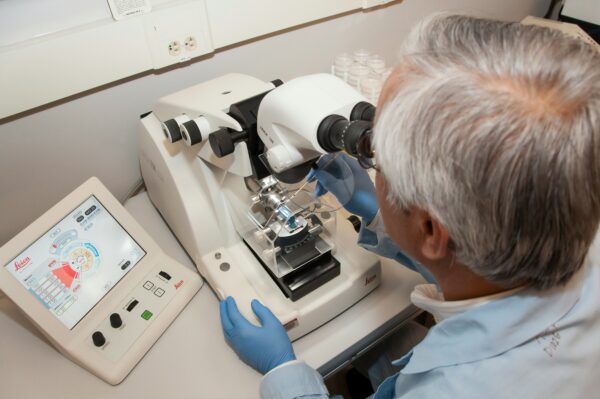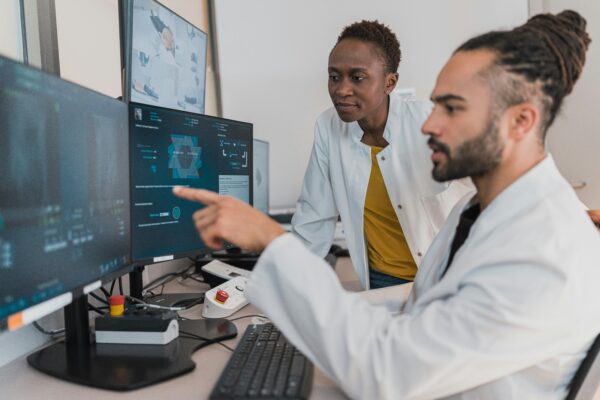Understanding Preimplantation Genetic Diagnosis (PGD) in Fertility Treatments
In the realm of medicine the pursuit of healthier infants often drives couples to seek out cutting edge technologies. One such advancement is Preimplantation Genetic Diagnosis (PGD) a process that has ignited both optimism and debate.
The Basics of PGD
PGD, which stands for Preimplantation Genetic Diagnosis, is an advanced technique used alongside in vitro fertililzation (IVF). It provides prospective parents with the ability to examine embryos for genetic disorders prior to implantation. This approach not assists in detecting embryos with genetic conditions but also allows for sex selection, sparking debates on its implications.
How PGD Works
The process of Preimplantation Genetic Diagnosis (PGD) starts with In Vitro Fertilization (IVF) where eggs are fertilized outside the womb. After the embryos reach a stage of development a cell is taken from each embryo. This cell is then tested for its health and potential genetic issues.
- Step 1: IVF is performed to create embryos.
- Step 2: A single cell is removed from each embryo.
- Step 3: Genetic testing is conducted on the extracted cells.
- Step 4: Results are provided within 24 hours, indicating which embryos are viable.
This quick testing gives potential parents important insights to make choices about embryo implantation.

Benefits of PGD
For couples PGD provides a glimmer of hope particularly those who have encountered difficulties in conceiving or have a background of genetic conditions in their families. The advantages of PGD are plentiful.
- Reduced Risk of Genetic Disorders: PGD allows screening for conditions like Down syndrome and cystic fibrosis.
- Informed Choices: Couples can choose the healthiest embryos for implantation.
- Family Balancing: Some parents opt for sex selection to balance their family dynamics.
- Increased Success Rates: PGD can lead to higher success rates, particularly for couples over 35.
The option to select embryos that have a chance of carrying disorders gives families a sense of control and reassurance throughout their pregnancy journey.
Ethical Considerations Surrounding PGD
While PGD has its benefits it also comes with ethical challenges. The process sparks debates on the ethics of choosing embryos based on characteristics and the possibility of creating ‘designer babies’.
The Controversy of Sex Selection
A highly debated aspect of preimplantation genetic diagnosis (PGD) is the option to choose the gender of the embryo. Some view this as a way to balance families while others perceive it as a step towards altering genetics based on individual preferences.
According to bioethicist Art Caplan if society permits sex selection what are the boundaries? Could it potentially extend to choosing attributes such as height, intelligence or appearance? This raises the importance of providing counseling and establishing ethical standards when it comes to using PGD.

Photo by Accuray
The Role of Counseling
Experts are in consensus that couples contemplating PGD should seek counseling. Conversations should delve into the aspects and moral considerations ensuring couples are well aware of their decisions. Dr. Julio Pabon underscores the importance of treating each case with sensitivity and understanding.
Real-Life Impacts of PGD
For families, PGD provides an opportunity to prevent the transmission of genetic disorders. A couple residing in North Tampa, whose child was diagnosed with cystic fibrosis, pursued PGD to guarantee that their upcoming baby would not encounter difficulties.
The impact of choices on emotions is substantial. Parents frequently share sentiments of remorse or sorrow when looking back, on their decisions. They often find themselves wishing they could have implemented actions to prevent hereditary conditions in their offspring.

The Future of PGD
The field of genetic testing is undergoing changes. Specialists anticipate that in the future preimplantation genetic diagnosis (PGD) may broaden its scope to include screening for conditions such as autism and schizophrenia. This potential development sparks discussions, on the limits of genetic testing.
The Cost and Accessibility of PGD
While PGD offers advantages it also comes with a cost. The procedure can amount to thousands of dollars and is typically not included in insurance coverage. This financial strain may restrict access for couples who could find it beneficial.
Final Thoughts
PGD stands, for progress in technology providing families with possibilities. Yet its important to acknowledge the ethical concerns and financial obstacles. Couples contemplating PGD should carefully consider their decision through research, counseling and a solid grasp of the potential consequences.
With advancements in technology discussions, about preimplantation genetic diagnosis (PGD) will stay important. Society needs to navigate the dilemmas while also welcoming the opportunity to shape brighter futures for kids.



